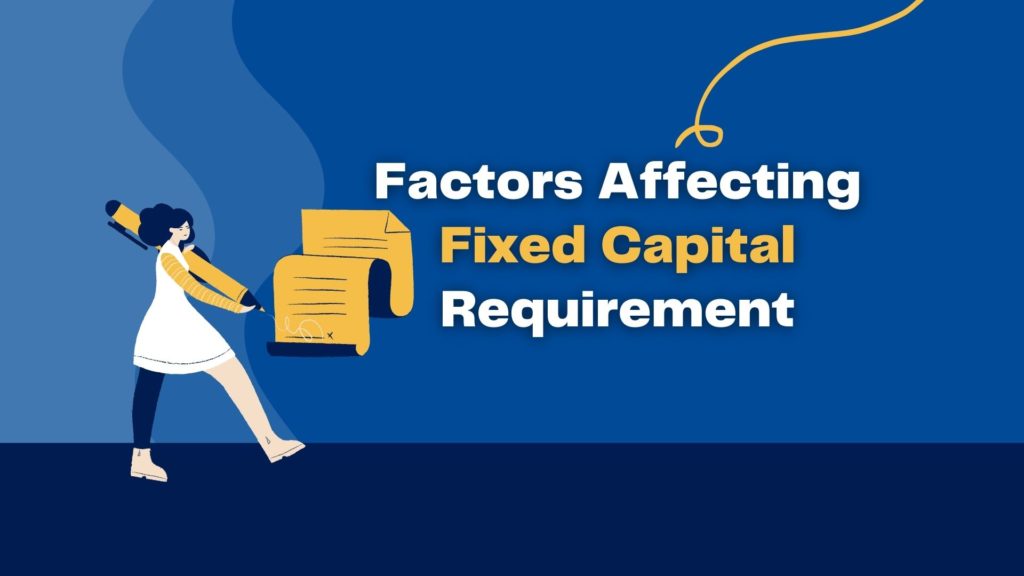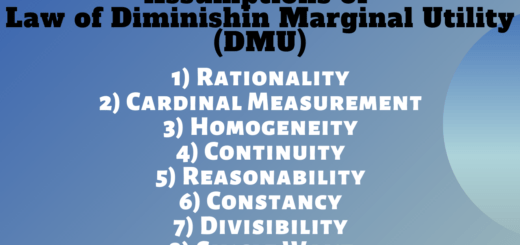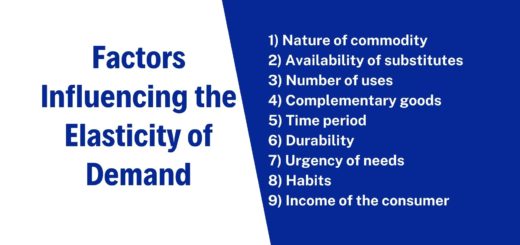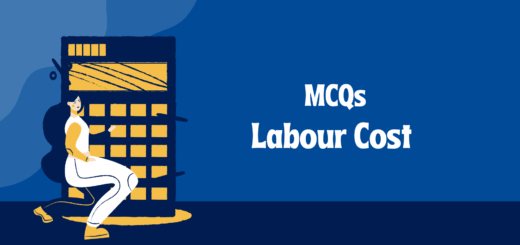12 Factors Affecting Fixed Capital – Scholarszilla

Table of Contents
Factors Affecting Fixed Capital
Fixed capital is the capital that is used for buying fixed assets that are used for a longer period of time in the business. These assets are not meant for resale.
In simple words, fixed capital refers to capital invested for acquiring fixed assets. It stays in the business for a long period almost permanently.
Examples of fixed capital are –
Capital used for purchasing land and building, furniture, plant, and machinery, etc. Such capital is required usually at the time of the establishment of a new company. However, existing companies may also need such capital for their expansion and development, replacement of equipment, etc.
Factors Affecting Fixed Capital Requirement
1) Nature of business
Manufacturing industries and public utilities have to invest huge amounts of funds to acquire fixed assets. While Trading business may not need huge investments in fixed assets.
2) Size of business
Where a business firm is set up to carry on large-scale operations, its fixed capital requirements are likely to be high. This is because most of their production processes are based on automatic machines and equipment.
3) Scope of business
There are business firms that are formed to carry on production or distribution on a large scale. Such businesses would require more amount of fixed capital.
4) Extent of lease or rent
If an entrepreneur decides to acquire assets on lease or on rental basis, less amount of funds for fixed assets will be needed for the business.
5) Arrangement of sub-contract
If the business wants to sub-contract some processes of production to others, limited assets are required to carry out the production. It would minimize fixed capital requirement of business.
6) Acquisition of old assets
If old equipment and plants are available at low prices, then it would reduce the need for investment in fixed assets.
7) Acquisition of assets on concessional rate
With the view to foster industrial growth at regional level, the government may provide land and building, materials at concessional rates. Plants and equipment may also be made available on installment basis. Such facilities will reduce the requirement of fixed assets.
8) International conditions
This factor is very significant particularly in large organizations carrying business on international level. For example companies expecting war, may decide to invest large funds to expand fixed assets before there is shortage of materials.
9) Trend in economy
If the future of the company is anticipated to be bright, it gives green signal to business entrepreneurs to carry out all sorts of expansion of business firm. In that case, large amount of funds are invested in fixed assets so as to reap the benefits in future.
10) Population trend
When the population is increasing at a high rate, certain manufactures find this as an opportunity to expand business. For example- the automobile industry, electronic goods manufacturing industry, ready-made garments, etc. which necessitates huge amount of fixed capital.
11) Consumer preference
Industries providing goods and services which are in good demand, will require large amount of fixed capital. For example – Mobile phone manufactures as well as mobile network providers.
12) Competitive factor
This factor is prime element in decision making regarding fixed capital requirements. If one of the competitors shifts to automation, the other companies in the same line of activity, will be compelled to follow that competitor.


